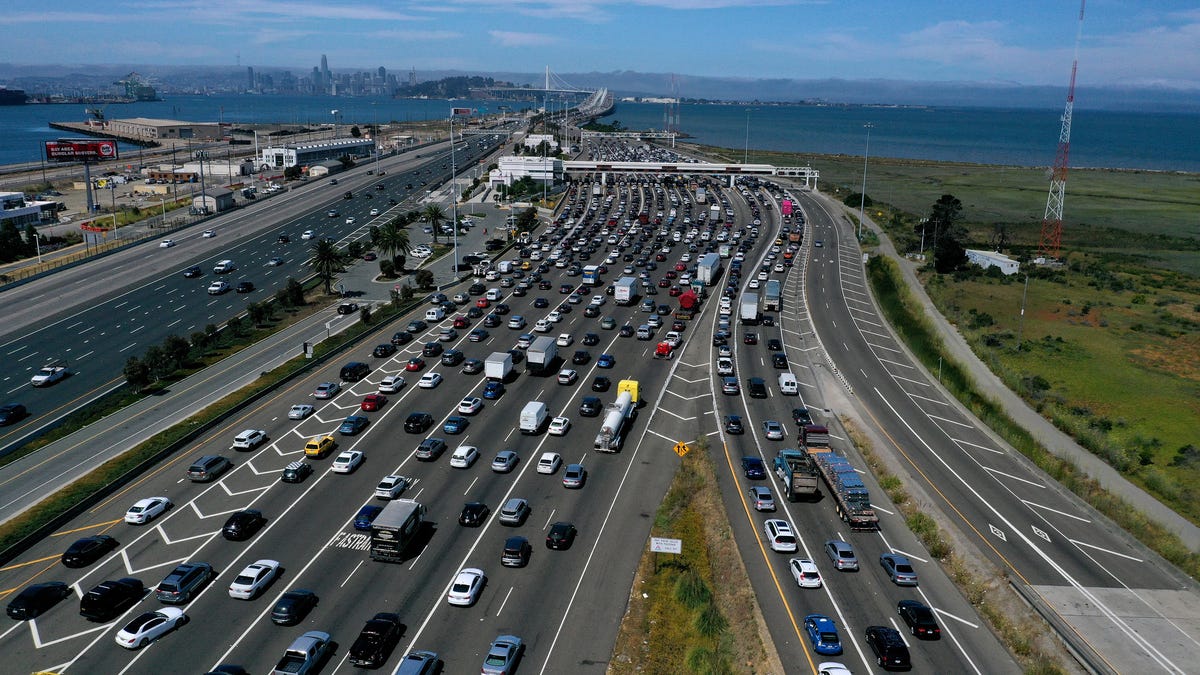Revised US fuel economy standards will reportedly end California waiver
A new report claims the Trump administration will, indeed, revoke California's waiver to set greenhouse gas standards.

Prepare for quite a legal battle between California and the federal government.
California and the US federal government will likely be slipping on the boxing gloves as a new report claims revised fuel economy and emissions standards will, in fact, end the California waiver, according to a Reuters report on Thursday.
For better understanding of the battle brewing, let's walk through how we got there. In 2018, the EPA and NHTSA proposed revised fuel economy and emissions regulations under the Trump administration to phase out aggressive targets implemented during the Obama administration. The previous administration targeted incremental fuel economy improvements to top out at 46.7 miles per gallon across a vehicle fleet. The widely publicized 54.5-mpg figure refers only to passenger cars.
The proposed fuel economy freeze instead looked to halt figures at 2020 levels on the Obama-era plan, which would leave automakers to meet standards of 37 mpg for passenger cars and light trucks from 2021 through 2026. In the process, the Trump administration also eyed an end to California's waiver. The waiver process, granted in 2013, allows California to set its own greenhouse gas standards and vehicle rules.
Per the report on Thursday, the federal government will still allow California to set low-emission vehicle standards.
Here's where things will get really ugly, really quickly. California's waiver allows it to all but require automakers to sell zero-emission vehicles to meet state regulations. Thirteen other states follow these rules, which the federal Clean Air Act allows. Colorado recently joined, bringing the total to 14 in the near future.
Without the waiver process, California will not be able to set a zero-emission mandate to earn credits. California sees the waiver process as essential to battling smog and pollutants locally; the Trump administration believes it muddies the water and wants to instead let automakers follow a single, national fuel economy standard. The EPA plans to argue, per the proposal last year, that California focused too heavily on greenhouse gas emissions and that CO2 is not part of the problem. Rather, it takes the position that nitrogen oxides are a bigger culprit. The EPA has the right to deny the waiver if the state's rules are "arbitrary and capricious," per the EPA website.
California and states that follow its standards have long argued they will fight to enforce Obama-era regulations, which will likely lead to lengthy states' rights court battles. For automakers, it may open a can of uncertainty that lasts far too long. Future product decisions are made here and now. The Trump administration admitted the plan will cause an increase in CO2 emissions through 2035, but argued it will allow automakers to build vehicles for market demand and not regulations.
The news that the US will end the waiver process comes after California and four major automakers agreed to a voluntary fuel economy and emissions target that's slightly less rigorous than the Obama-administration targets. It's rumored Mercedes-Benz and one other major automaker are preparing to also sign onto the California pact.

